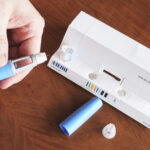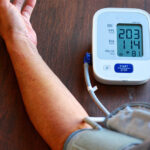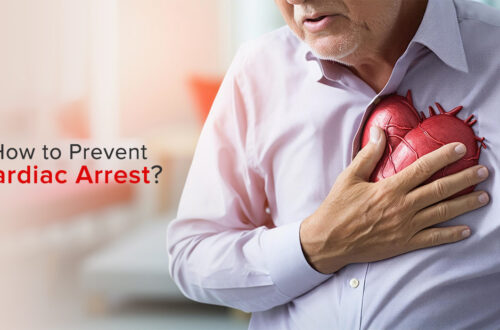Pregnancy Stress Linked to Higher Blood Pressure
Pregnancy Stress may Elevate Post-birth Blood Pressure – Psychosocial stress during pregnancy may contribute to elevated blood pressure within the first year after childbirth, according to a study conducted by the Keck School of Medicine of USC.
The research, published in the journal Hypertension and supported by the National Institutes of Health (NIH), explored whether expectant mothers who experienced heightened perceived stress and depressive symptoms during pregnancy were at greater risk of developing higher blood pressure in the four years following childbirth.
The findings indicated that these factors were significantly associated with increased blood pressure in the first year postpartum, although the correlation weakened over time.
Understanding the Impact of Stress on Maternal Health
Pregnancy is a period of profound physiological and emotional changes, and this study contributes to growing maternal health research by examining how stressors affect women beyond childbirth.
“This research helps us better understand how maternal stress impacts health outcomes after pregnancy,” said Noelle Pardo, the study’s lead author and a third-year doctoral student in the Department of Population and Public Health Sciences at the Keck School of Medicine.
Study Insights: Psychosocial Stress and Social Cohesion
The study analyzed data from 225 mothers enrolled in the MADRES pregnancy cohort, a research initiative primarily comprising Hispanic and low-income women living in Los Angeles.
Hispanic women face a disproportionately high burden of cardiovascular risk, and increasing evidence suggests that psychosocial stressors contribute to poor cardiovascular health, a leading cause of mortality among women in the U.S.
Additionally, the study examined whether prenatal neighborhood social cohesion—a sense of connection and trust within a community—could serve as a protective factor against postpartum hypertension. This aspect of the research is a novel investigation into how community support influences maternal health.
“We wanted to understand how socially connected our participants felt and whether this had an impact on their postpartum health. Right now, there are few policies or programs designed to foster community cohesion, yet our findings suggest such interventions may serve as a valuable protective factor,” Pardo explained.
The Importance of Postpartum Monitoring and Interventions
Historically, maternal health research has focused primarily on pregnancy outcomes, with fewer studies examining women’s health beyond childbirth. However, this research underscores the need for long-term maternal health monitoring, particularly among those who experience significant prenatal stress.
The study’s findings highlight the necessity of identifying at-risk individuals within the pregnant population and implementing early interventions to mitigate stress and depressive symptoms. Additionally, the research emphasizes the importance of routine hypertension screenings for new mothers who have experienced high prenatal stress.
“Pregnancy may play a crucial role in shaping a woman’s long-term cardiovascular health. More research is needed to determine how various exposures during pregnancy influence future cardiovascular risks,” Pardo concluded.
Effective Solutions
To address the issue of pregnancy stress potentially elevating post-birth blood pressure, a combination of medical, psychological, and lifestyle interventions can be implemented. Here are some effective solutions:
- Stress Management Techniques
- Mindfulness and Relaxation: Practicing mindfulness, meditation, or deep breathing exercises can help reduce stress levels during pregnancy.
- Cognitive Behavioral Therapy (CBT): Engaging in therapy can help expectant mothers manage anxiety and depressive symptoms.
- Prenatal Yoga & Gentle Exercise: Physical activity releases endorphins, which help combat stress and improve cardiovascular health.
- Emotional and Social Support
- Support Groups: Connecting with other pregnant women through support groups can create a sense of belonging and shared experiences.
- Family and Partner Support: Encouraging open communication and emotional support from family members can reduce stress levels.
- Community Engagement: Strengthening neighborhood social cohesion—such as participating in community events—can foster a sense of security and belonging.
- Healthy Lifestyle Choices
- Balanced Nutrition: Consuming a diet rich in potassium, magnesium, and omega-3 fatty acids can help regulate blood pressure. Foods such as leafy greens, nuts, and fatty fish are beneficial.
- Adequate Sleep: Poor sleep can contribute to stress and hypertension; establishing good sleep hygiene is essential.
- Hydration: Drinking enough water helps maintain cardiovascular function and manage blood pressure.
- Regular Medical Monitoring
- Routine Blood Pressure Checks: Pregnant women should have their blood pressure monitored frequently to detect early signs of hypertension.
- Early Intervention for Pre-eclampsia: If high blood pressure is detected, medical professionals should assess for conditions like pre-eclampsia, which can be managed through medications or lifestyle modifications.
- Postpartum Follow-Ups: New mothers should continue monitoring their blood pressure after birth, especially if they experienced prenatal stress.
- Policy and Workplace Support
- Paid Maternity Leave: Providing financial stability through paid leave reduces stress levels in pregnant and postpartum women.
- Mental Health Awareness Programs: Employers should promote mental well-being initiatives to support working mothers.
By addressing both psychological and physiological factors, these solutions can help mitigate the risk of high blood pressure following pregnancy.
Reference:
- Pardo, N., et al. (2025). Prenatal Psychosocial Stressors and Blood Pressure Across 4 Years Postpartum. Hypertension. https://doi.org/10.1161/hypertensionaha.124.23979.
Bulimia Nervosa An Eating Disorder
Natural Treatments for the Brain
Cucumber Beautifies and Cleanses the Skin
Turmeric for your stomach and skin

A graduate of Computer Science and Information Management Technology. Diploma – Caregiving, Certificates – Dementia and Diabetes Awareness and Management. A researcher, blogger, songwriter, singer and acoustic guitarist. Born in an environment where natural talents such as healing are imparted at our natural birth. This natural talents of healing is the result of our genetic inheritance and the training from family environment.













